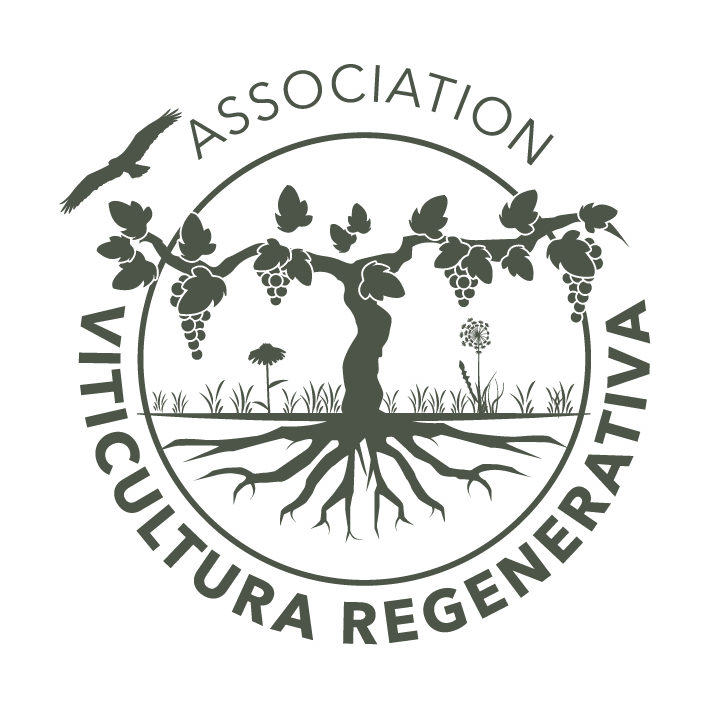We review the four symposiums held previously
This initiative, with more and more wineries and followers, aims to inform about scientific advances and make clear the principles and benefits of regenerative agriculture to effectively face the climate crisis and, at the same time, demonstrate that good wines can be made. These symposiums have generated two pillars of reference to carry out the revolutionary change of the agricultural model: the Association of Regenerative Viticulture, with an increasing presence in the vineyards, and the Regenerative Viticulture Alliance (RVA) certification, which guarantees the praxis to make it effective.
First Symposium – (Vinseum, Vilafranca del Penedès, June 18, 2021)
Title: "Regenerative agriculture contributes to carbon fixation, restores life to the soil and slows erosion"
General objective: to raise awareness of the principles and benefits of regenerative agriculture in the face of the climate crisis.
The first Regenerative Viticulture Symposium, organized by Familia Torres, coinciding with the World Day to Combat Desertification, laid the foundations for a new agricultural model that responds to the challenges of climate change. Specialists such as Francesc Font and Pilar Andrés stressed that regenerative agriculture makes it possible to fix carbon, restore microbial life in the soil and stop erosion, with proven environmental and economic benefits. Through examples from Australian winegrowers and case studies such as Darren Doherty or James Sweetapple, it was shown that regenerating the soil can increase the quality of the wine and the resilience of the vineyard. Familia Torres announced the conversion of 500 hectares of its own to this model and advanced the creation of an association to share knowledge and promote the regenerative transition.
Second Symposium – (Vinseum, Vilafranca del Penedès, May 9, 2022)
Title: "The importance of changing the model to curb climate change"
General objective: to show the advantages of regenerative viticulture and move towards its certification.
The second edition, organized by the Association of Regenerative Viticulture, with the support of Familia Torres, delved into its advantages in bringing life back to the soil and restoring the relationship between plants, animals and humans. Regenerative agriculture was highlighted as a tool to combat soil depletion and improve biodiversity, fertility and water capacity. Joel Salatin, a pioneer in regenerative livestock farming, and Johan Reyneke, a South African winegrower, presented practices that reduce water use, prevent erosion and increase the resilience of ecosystems. In addition, the new international Regenerative Viticulture Alliance (RVA) seal was presented, aimed at certifying good regenerative practices, as "a first step", which will give recommendations for practices to the field, as well as self-diagnosis aids and external audits of the levels of organic matter, carbon fixation and presence of biodiversity. The speakers insisted on the need to unlearn chemical agriculture and listen to natural rhythms again, "turning winegrowers into active agents of change".
Third Symposium – (Falset Castle, May 16, 2023)
Title: "Soil microbiology: key to resilient viticulture".
General objective: to deepen the role of soil microbiology in regenerative viticulture.
With nearly 300 attendees, the third symposium focused on soil microbiology as a key to resilient viticulture. Microbiologists Elaine Ingham and the Bourguignon tandem highlighted the importance of the soil food web and the need to promote microbial biodiversity to improve plant fertility and health. Jeff Lowenfels recalled that "no one fertilizes the forests", and defended viticulture based on symbiosis with microorganisms. Biological pest control, agroforestry, and plant health indicators were also discussed. Nicole Masters remarked that regenerative is a way of being, not a technique, while Francesc Font presented the RVA seal as a tool to give visibility to winegrowers who, by regenerating the land, contribute to cooling the planet.
Fourth Symposium – (Vinseum, Vilafranca del Penedès, June 3, 2024)
Title: "Adaptation to the water crisis".
General objective: to address how to improve the water resilience of vineyards to droughts.
The last edition, organized jointly by the Association of Regenerative Viticulture and INNOVI, addressed the water resilience of vineyards in the face of increasingly frequent and longer droughts. Dr. Maria Carme Llasat warned about the impact of climate change on the Mediterranean, with less water and more extreme events. Elena Baraza and Laura Armengot presented solutions such as the use of vegetation cover, agroforestry and efficient landscape management to improve water retention and reduce evapotranspiration. Producers such as Julián Palacios and Sergi Caballero shared specific strategies, such as respectful pruning or the appropriate choice of plant covers to rehydrate the landscape and enhance organic matter, to conserve and make the most of the little water we have. This will be one of the main paths for the viticulture of the future. That is precisely what the farmer, rancher and consultant Sergi Caballero has talked about. Gardener Ángel Perurena defended the design of resilient landscapes to face a difficult agricultural future. The edition closed by reinforcing the role of the Association as a meeting and recognition space for a new viticulture with meaning.
